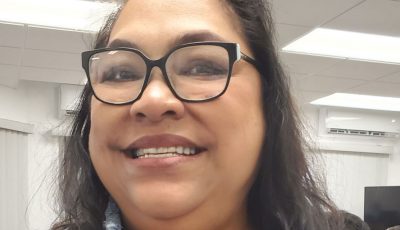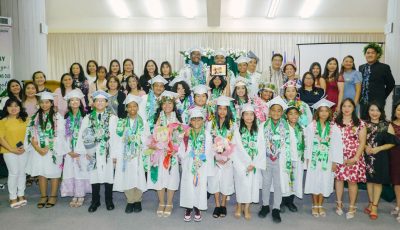SHEFA to revisit ‘priority field of study’ program
The Saipan Higher Education Financial Assistance board plans to revisit its incentive grant for scholars under its “priority field of study” program.
As it is right now, some board members believe that SHEFA regulations governing the priority field of study is too broad, with too many fields of study.
This grant is an incentive program that seeks to encourage Saipan students to pursue college degrees that are highly needed on the island such as in education or the medical field.
SHEFA board member Juan Tenorio said they have a good base already for the priority fields, but they still need to revisit and further narrow the fields into specific careers that are necessary here in the CNMI.
“That is what we have been trying to do and it is set now and we do have a priority. We have students particularly in education and health and a lot of students take that and right now we need to prioritize that and look from there,” Tenorio said.
Saipan Tribune learned that in 2012 to 2013, about 29 percent of SHEFA students major in education and 14 percent are under medical and allied fields.
Other priority fields of study include social sciences and fine arts, with 19 percent of students; 11 percent are in business marketing, management, and administration; 8 percent are taking up computer science; 7 percent, criminal justice; 5 percent, environmental studies; 4 percent, accounting; and 3 percent, engineering and related fields.
SHEFA board chair Josephine T. Sablan said they have to look further into education and see what type of degrees will fit the priority fields of study.
SHEFA board chair Ursula Aldan said that they have a report from the Workforce Investment Agency on what positions WIA applicants mostly apply for.
Other courses on the list of priority field of study are accounting; nursing; teaching with specialization in special education, early childhood education, library science, counseling, bilingual education; business management and administration; hospitality and information technology with emphasis on anthropology, sociology for teaching; biology (science) for teaching; criminal justice leading to forensic science; lab technology; psychology other than leading to counseling; human resources development/personnel management; social worker.
It adds: mathematics for teaching; engineering/architect; medical and allied fields including psychiatry; environmental studies/conservation (e.g., natural resources, volcanology, marine biology, fish and wildlife, meteorology and archeology); and computer graphics, including technical or specialized trades such as journalism, management information, computer programming and other fields of study sanctioned by the board.
“We will look into this after the committee on priority fields come up with a solution or projection on the basis of the priority fields,” Sablan said.



























